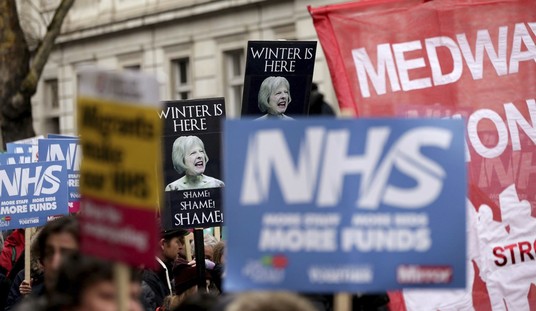Do massive donations of cash as aid to poor nations allow them to focus on structural improvements and increased spending on health? Or does that money allow corrupt governments to divert resources that they would have spent on those issues to other priorities? A new study by Lancet strongly suggests the latter — even when the donors believe they have secured the distribution of the funds:
After getting millions of dollars to fight AIDS, some African countries responded by slashing their health budgets, new research says.
For years, the international community has forked over billions in health aid, believing the donations supplemented health budgets in poor countries. It now turns out development money prompted some governments to spend on entirely different things, which cannot be tracked. The research was published Friday in the medical journal Lancet. …
The research raises questions about whether international aid is sometimes detrimental. Previous studies have found pricey United Nations health initiatives haven’t paid off and occasionally hurt health systems. Experts estimate about half of international health aid can’t be traced in the budgets of receiving countries.
Murray’s paper also found debt relief had no effect on health spending. Activists like Bob Geldof and Bono have long argued canceling African debts would allow countries to spend more on their health problems, but there was no evidence of that.
“When an aid official thinks he is helping a low-income African patient avoid charges at a health clinic, in reality, he is paying for a shopping trip to Paris for a government minister and his wife,” said Philip Stevens, of the London-based think tank International Policy Network. He was not linked to the study.
What can we learn from this study that we really should have already known?
- Money is fungible – Giving block grants to a state for one purpose doesn’t mean that the purpose gets more money. It allows the state to divert its already-committed resources to other purposes. We’ve learned that here in the US with Porkulus block grants to states. Without accountability, that money can go anywhere and either directly or indirectly feed the corruption at the heart of Africa’s problems.
- Corruption is the root cause of nationwide poverty – We have sent monetary aid to Africa for decades in attempts to fix the problems of poverty and disease. That should tell us that money isn’t really the root problem in these countries. The governments, mostly corrupt dictatorships, create the problems through outright theft or the imposition of incompetent central economic planning. In Zimbabwe, for just one example, it’s both. That nation’s land used to provide for much of Africa’s food, and now it can’t even feed itself.
- We need to change direction in Africa – None of us want to see an entire continent fail, but we apparently have two choices. Either we drop billions on Africa every year in aid that extends the status quo, or we cut off the aid and force African nations to change from within. The US had moved toward the latter in the last few years, but guilt-trip initiatives (however well meaning) keep putting political pressure on nations to maintain the status quo.
If we really want to solve the problem of poverty and illness in Africa, we need to demand political reform. Everything else is a band-aid, and not the kind of Band Aid that means aging rockers taking to the stage on G-20 conferences.








Join the conversation as a VIP Member